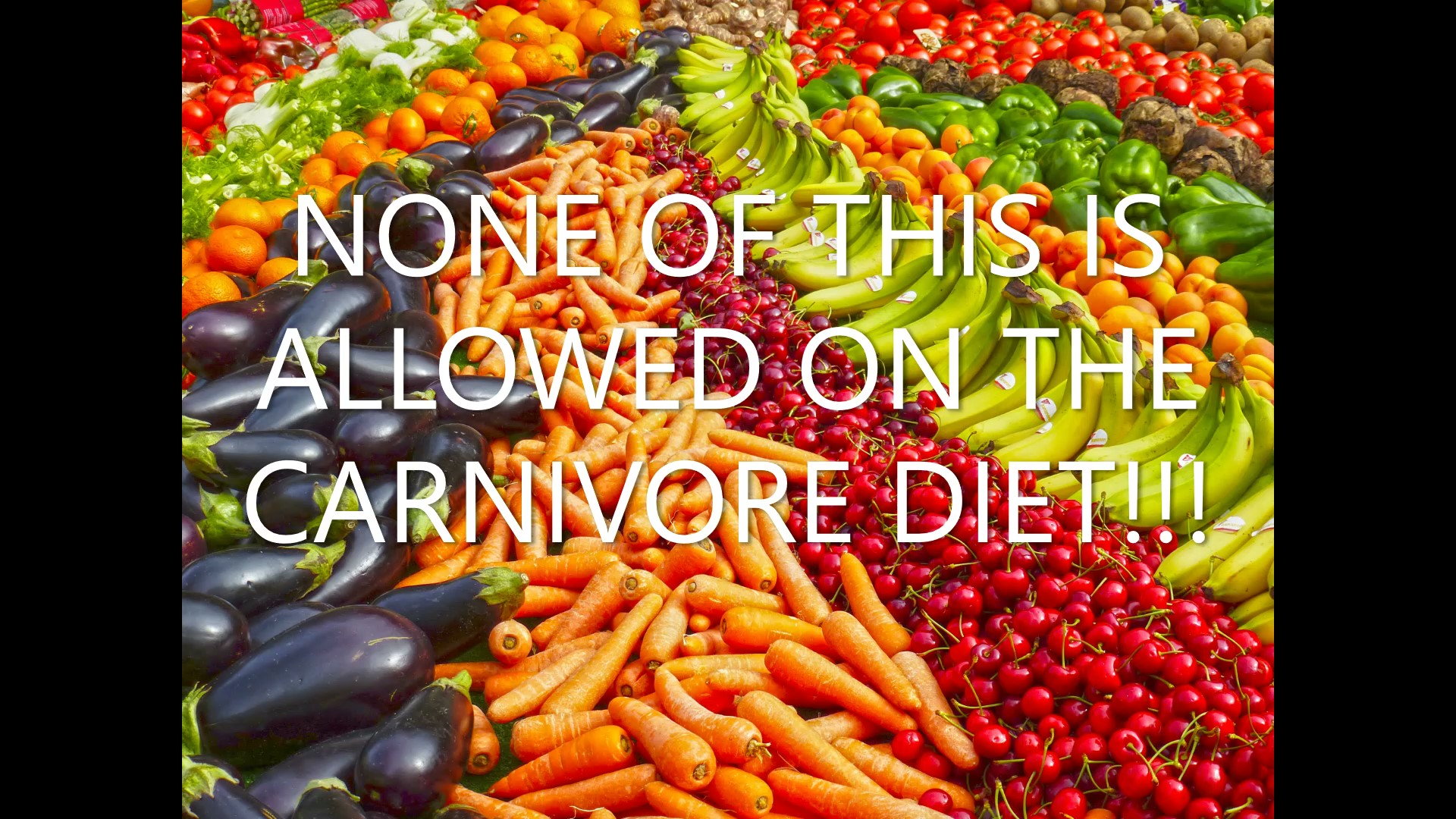by Megan Crockart | Balancing Nutrition
 What is the Carnivore diet? Is it another new diet fad to hit the internet? What are the pros and cons of such an extreme diet?
What is the Carnivore diet? Is it another new diet fad to hit the internet? What are the pros and cons of such an extreme diet?
The Carnivore Diet was created by an American orthopaedic surgeon in 2018 after his medical license was voluntarily and permanently surrendered under order by the New Mexico Medical Board in 2017 for misconduct. The diet consists of just animal protein and no other foods.
There are 3 recommended stages of the diet:
- Level 1 Protocol – You are allowed to have all of the animal proteins such as beef, pork, chicken, fish, lamb etc including processed meats, plus you can have bone broth, eggs and dairy products in the form of butter, cheese and heavy whipping cream. If you are addicted to coffee, they allow you to still drink coffee and tea, if really necessary but promote coffee over tea. They also recommend Pink Himalayan salt, electrolytes and some digestive supplements.
- Level 2 Protocol – Just meat and water. You still have the choice of what type of meat, but processed meat is now a no go. You can no longer have the “condiments/sides” of eggs, dairy, tea and coffee. You can still have Pink Himalayan salt, but nothing else.
- Level 3 Protocol – Is beef only and water! NOTHING ELSE!!! The recommendation is grass-fed or grass-finished beef.
It is recommended you do each level for 30 days starting at Level 1. At the end of Level 3, you are then encouraged to work your way back up to Level 1 “testing” each food you bring back in and seeing whether there is a reaction. If you react, then you go back to Level 3 again. It is suggested that most carnivores will stay on either level 1 or 2 after achieving level 3, although Level 2 is the level most desired for long-term carnivores. It is also suggested that this “test experiment” can be undertaken for “months to years” to “reverse the years of damage”.
There have been many extreme diets over the years and not just in recent times. I feel that this diet would be the most extreme thus far by cutting out just about everything.
There are claims that the Carnivore Diet will “reverse autoimmunity, chronic inflammation and mental health issues… encourage weight loss, improving autoimmune issues, gut issue or skin condition…improve glucose control or reverse metabolic syndrome or diabetes”.
From my years of experience as a clinical nutritionist and from the studies I have read, I cannot understand how these claims can be made.
To be fair, I will point out what is good about this diet:
- It gets rid of sugar and processed packaged foods and unnecessary drinks.
- It encourages drinking water only.
- It does recommend eating grass-fed or at least grass-finished meat. But on that note, everyone should be eating organic grass-fed (not just grass-finished) meat. Especially if you are eating a lot of meat. Eating organic meat is extremely important.
- It encourages to eat nose-to-tail, which has benefits of getting more nutrients and less waste.
- It encourages to avoid processed meats.
- It does emphasise that blood sugar control/maintenance is dependent on eating less carbs and a higher protein diet will lead to weight loss and have a greater satiating effect than high carbohydrate or low-fat meals, which is accurate.
Here are some aspects that are not so good about it, besides the obvious of who could eat JUST MEAT EVERY. SINGLE. DAY!?
- Apart from boredom, there is no variation in this diet. There are so many nutrient deficiencies that would be associated with only eating meat that I won’t list them all. If you stayed on Level 1, you would have less deficiencies than on level 2 and 3 as you are getting a few more nutrients from the added eggs and dairy. While being on Level 3, you are missing out on many crucial vitamins, minerals and important nutrients as beef on its own is limited in what it contains. If you are eating nose-to-tail of all the animal meats in Level 2 you are covered somewhat nutritionally. Here is a small example list of what you miss out on if you stayed on Level 2 and 3:
- Beta carotene, bioflavonoids, tocotrienols, boron, chloride, silicon, bromelain, D-Glucaric acid, D-mannose, fructo-oligosaccharides (fermentable fibres), indole-3-carbinol, isoflavones, malic acid, phosphatidylserine, resveratrol and salicylic acid.
- Vitamin C deficiency is the biggest stand out nutrient. The Carnivore diet claims that meat has enough vitamin C that there will be no deficiency and supplementation is not required. If you are eating daily amounts of raw liver, raw fish roe and raw eggs you may achieve your daily requirement. Raw meat and fish have very tiny amounts of vitamin C and not enough. As soon as vitamin C is cooked it is destroyed.
- One of the most important requirements for our body is fibre. Animal products do not contain fibre. Fibre is only gained from plant foods. As a nutritionist that deals with gut issues on a regular basis, my question is, how do these carnivore’s poo? Fibre is extremely important (besides assisting us to pass bowel motions) including, but not limited to:
- Lowering cholesterol
- Reducing the risk of heart disease
- Lowering the risk of colon cancer
- Increasing the feeling of fullness after a meal, promoting weight loss
- Lowering blood pressure
- Feeds beneficial bacteria in our gut
- Animal protein is harder for the human body to digest and it does take longer with a lot more work by the body. Many people do not digest meat very well even if they are having a lot of plant foods in their diet.
- You can only gain essential fatty acids if it is from grass-fed meat. Grain-fed meat will not give you the required essential fatty acids. If you stay on Level 1 and include plenty of fish and grass-fed meat, then you will likely meet your requirement.
- Another aspect not so related directly to human health to think about is the environmental impact if we only ate meat.
The various risks by eating this way long term include:
- Various cancers, particularly colon;
- Heart disease and blood pressure issues
- Kidney disease – studies show that unless a person’s kidney function is at optional health, then this diet carries a huge risk
- Digestive disorders
- Type 2 diabetes
- Increasing inflammatory markers, which can then lead to various other health conditions.
Most of the diet fads might seem good and achieve some great results short term, but long term our bodies really do need variation in what we eat. Extremes of any sort of eating will lead to health issues long term.
Most people need to eat a variety of foods across plants and animals to achieve optimal health. There are health conditions and individual people that respond well to cutting certain foods out long term (eg gluten) or reducing certain macros (protein, fats and carbs) in certain ratios (paleo, keto, high carb/low fat etc). Some people do better by taking on whole plant foods and cutting out animal products completely (vegan).
Whatever diet or lifestyle choice you make that is taking out any type of certain foods or a number of foods/whole groups of foods should be discussed with a qualified health professional such as a nutritionist, to ensure that all your nutrient needs are met in other ways and that the diet/lifestyle choice is done in the best possible way to achieve optimum health.
*References upon request
Megan Crockart is a qualified Holistic Nutritionist & a self-confessed foodie! Megan has a special interest in working with individuals with allergies, food intolerances, SIBO, eczema, pre- & post-natal health & children’s health.
To book a consultation with Megan please click here.


